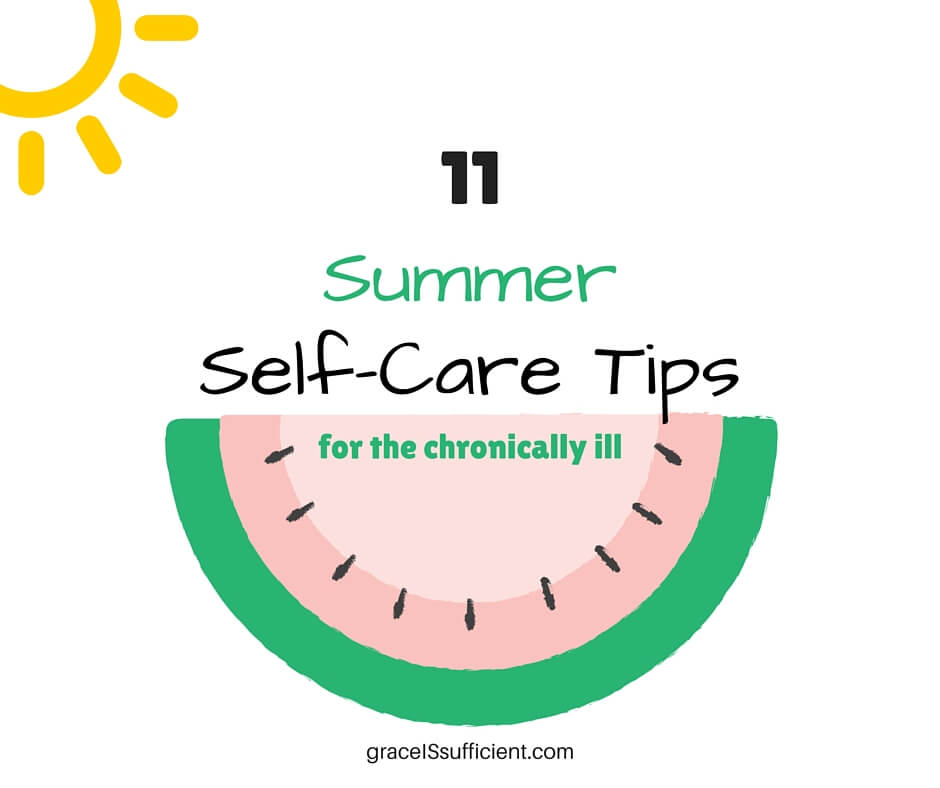If you’ve been chronically ill for some time, you understand that knowing when to call the doctor can be challenging and frustrating. We hold off calling the doctor for a number of reasons:
- On one hand, you want to know if something new is going on but on the other hand, you don’t want to go and be told, once again, the same old story, that it’s just another symptom of your illness surfacing.
- You already attend doctor appointments and scheduled tests way more than you want to, and frankly, you’re tired of it.
- The medical bills are piling up and you just don’t want to add more expenses if they aren’t necessary.
- The list goes on…

Now if you’re one of my email friends, (and if you’re not, you should be! 😉) or you follow me on Instagram or Facebook, you know I’ve recently been diagnosed with congestive heart failure. I had my first flutter/palpitation (whatever you want to call it) one year ago in November of 2016. It was strong, made me feel like I was going to blackout, and left me feeling dizzy and nauseous.
So why didn’t I call the doctor? Here’s a quick look at my thoughts:
- I’ve read numerous articles stating chest pain as a symptom of fibro.
- The new shortness of breath I was experiencing made sense due to the fact that I was previously diagnosed with M.E. (chronic fatigue syndrome).
- My daughter has POTS and our symptoms can overlap so I considered the fact that I may be developing POTS.
- It was getting close to the holidays so who had time to deal with this?
- I was only 47 at the time – certainly, it couldn’t be heart issues – I’ve never even had high blood pressure and neither of my parents had heart problems.
- I don’t love my primary care physician. He downplays everything and although I only see him about 3 times a year I’m beginning to think he believes I’m just a hypochondriac.
I’ll fill you in on the rest of the story another time – for now just know that I should’ve called the doctor with the first palpitation. I currently find myself on heart meds and attending cardiac rehab three days a week. I’ll have another echo-cardiogram on December 20th and if I haven’t been able to increase my ejection fraction (which is 20%) I’ll be sent to a cardiac care team at the University of Michigan with the probability of receiving an implantable defibrillator and, quite possibly, be considered for a heart transplant.
The following are a list of 10 suggestions to help you know if and when you should call your doctor:
Before you read through this list I want to remind you I am not a doctor. I am simply a patient with a number of chronic illnesses, like most of you. Each patient’s needs and symptoms are different so this list isn’t all-inclusive and doesn’t contain critical reasons such as chest pain, a burn, trouble breathing or other symptoms that warrant an immediate trip to the ER. Also, a number of doctors now offer their email addresses which may be a nice alternative if you’re having a hard time deciding if your current issue is appointment-worthy. A quick note may help sway your decision to one side or the other. There are even hotlines available through a number of health services, hospitals, and websites to aid you in this process. Remember, when in doubt, err on the side of caution and make the appointment!
- You have discussed with your doctor various reasons for a visit and what you are experiencing falls within that rationale.
- You’re experiencing new symptoms. Whether or not they are on a list somewhere of symptoms some may experience with your diagnosis doesn’t matter. If it’s new to you, it’s worth the visit.
- You’re experiencing intensity in your usual symptoms that don’t lessen in a reasonable period of time.
- You’ve recently started a new medication and are concerned your new symptom may be an adverse reaction.
- You’re having symptoms of a normal sickness such as the flu or a cold, but that illness can have disastrous results when combined with your chronic illness.
- You can’t shake the feeling that your new symptoms are something you should tell your doctor about.
- Your chronic illnesses can become life-threatening with the increase in the symptoms you’re feeling. For this one, you may want to even consider a visit to the ER.
- You’ve discussed your situation with your family or trusted caregivers that are knowledgeable about your illness and they think you should see your doctor.
- Is your new symptom something that can happen normally to a “healthy” person like a sore shoulder or stomach ache? If so, you may choose to wait a bit to see if the problem subsides.
- You’ve noticed a distinct decrease or increase in your weight and you don’t know why.




